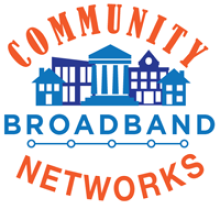By
on

You can also read this story over at the Huffington Post.
How can it be that the big companies who deliver some of the most important services in our modern lives (access to the Internet, television) rank at the top of the most hated? Probably because when they screw up or increase prices year after year, we have no choice but sticking with them. Most of us have no better options.
But why do we have so few choices? Government-sanctioned monopolies have been outlawed since the 1996 Telecommunications Act. Unfortunately, the natural tendency of the telecommunications industry is toward consolidation and monopoly (or duopoly). In the face of this reality, the federal government has done little to protect citizens and small businesses from telecom market failings.
But local governments have stepped up and built incredible next-generation networks that are accountable to the community. These communities have faster speeds (at lower prices) than the vast majority of us.
Most of these communities would absolutely prefer for the private sector to build the necessary networks and offer real competition, but the economics of telecom makes that as likely as donuts becoming part of a healthy breakfast. In most cases, the incumbent cable and telephone companies are too entrenched for any other company to overbuild them. But communities do not have the same pressures to make a short-term profit. They can take many years to break even on an investment that creates many indirect benefits along the way.
One might expect successful companies like AT&T and Time Warner Cable to step up to the challenge posed by community networks, and they have. Not by simply investing more and competing for customers, but by using their comparative advantage – lobbying state legislatures to outlaw the competition. As we noted in our commentary and video last week, massive cable and telephone companies have tried to remove local authority to build networks.
These companies frequently claim they are at an unfair disadvantage when they have to compete against a broadband network owned by the local government. This claim resonates strongly with some politicians, particularly those who happen to receive a lot of campaign contributions from big telco and cable companies -- as recently demonstrated in Wisconsin. They say they just want a "level playing field."
We decided to take a deeper look. We compared Time Warner Cable to Salisbury, North Carolina -- which built one of the newest community fiber networks – to see who is at a disadvantage.
 Big companies like Time Warner Cable have some big advantages over any community that decides to build a network. Of course, communities do not build their own networks on a lark, they do it because they need fast, affordable, and reliable networks for economic development and maintaining a high quality of life.
But a better comparison goes beyond simply the scale of the competitors in order to complete a more meaningful comparison. For that, we created our “Level Playing Field” video, attached below.
There should be no doubt that massive incumbent cable and phone companies have a monopoly on the “unfair” advantages in telecommunications. Fortunately, community networks have a host of local advantages and often superior technology with which to invest in the networks they need. The question is whether Congress and the states will protect the right of communities to choose for themselves if a local community network is necessary.
Big companies like Time Warner Cable have some big advantages over any community that decides to build a network. Of course, communities do not build their own networks on a lark, they do it because they need fast, affordable, and reliable networks for economic development and maintaining a high quality of life.
But a better comparison goes beyond simply the scale of the competitors in order to complete a more meaningful comparison. For that, we created our “Level Playing Field” video, attached below.
There should be no doubt that massive incumbent cable and phone companies have a monopoly on the “unfair” advantages in telecommunications. Fortunately, community networks have a host of local advantages and often superior technology with which to invest in the networks they need. The question is whether Congress and the states will protect the right of communities to choose for themselves if a local community network is necessary.
 Big companies like Time Warner Cable have some big advantages over any community that decides to build a network. Of course, communities do not build their own networks on a lark, they do it because they need fast, affordable, and reliable networks for economic development and maintaining a high quality of life.
But a better comparison goes beyond simply the scale of the competitors in order to complete a more meaningful comparison. For that, we created our “Level Playing Field” video, attached below.
There should be no doubt that massive incumbent cable and phone companies have a monopoly on the “unfair” advantages in telecommunications. Fortunately, community networks have a host of local advantages and often superior technology with which to invest in the networks they need. The question is whether Congress and the states will protect the right of communities to choose for themselves if a local community network is necessary.
Big companies like Time Warner Cable have some big advantages over any community that decides to build a network. Of course, communities do not build their own networks on a lark, they do it because they need fast, affordable, and reliable networks for economic development and maintaining a high quality of life.
But a better comparison goes beyond simply the scale of the competitors in order to complete a more meaningful comparison. For that, we created our “Level Playing Field” video, attached below.
There should be no doubt that massive incumbent cable and phone companies have a monopoly on the “unfair” advantages in telecommunications. Fortunately, community networks have a host of local advantages and often superior technology with which to invest in the networks they need. The question is whether Congress and the states will protect the right of communities to choose for themselves if a local community network is necessary.
Geoterm







